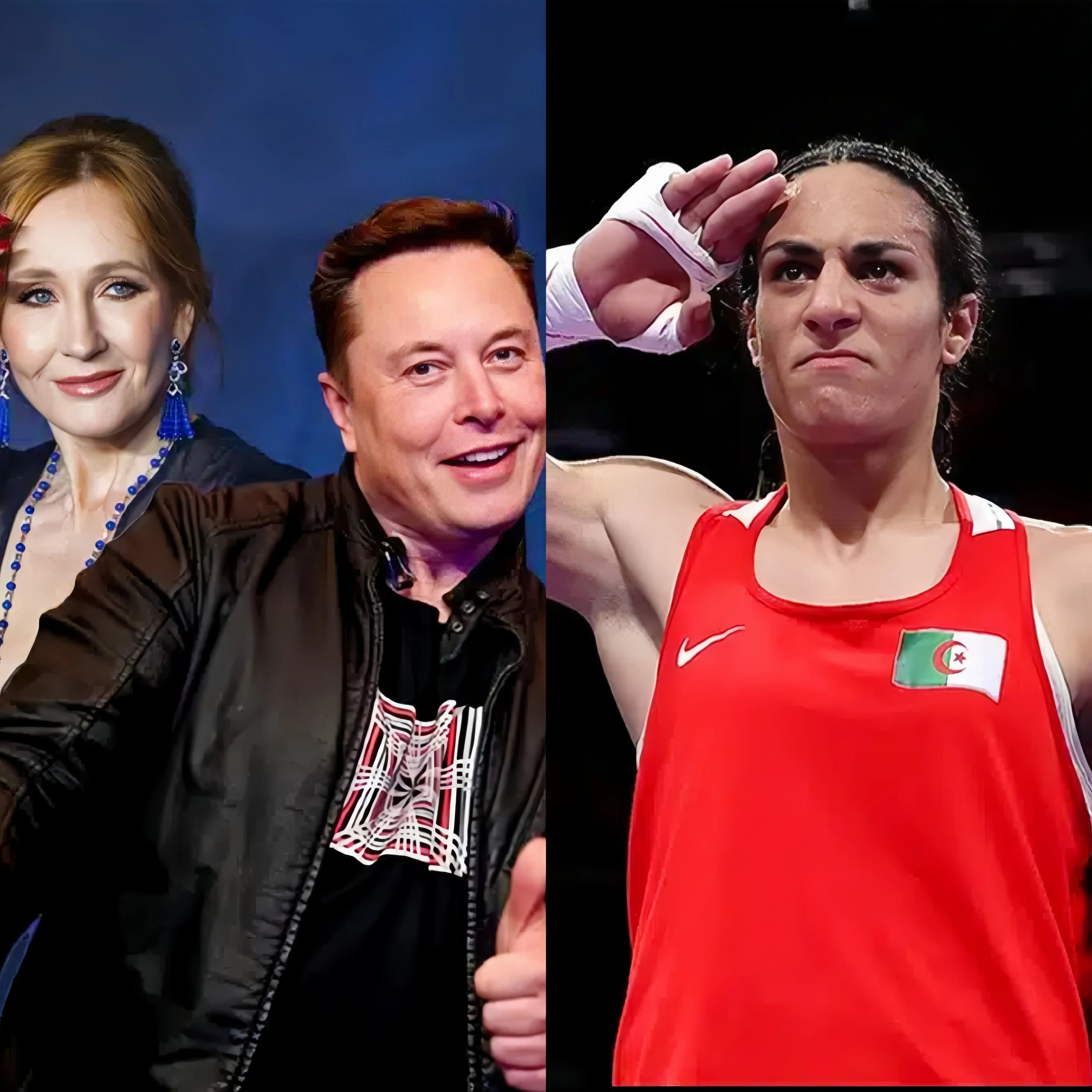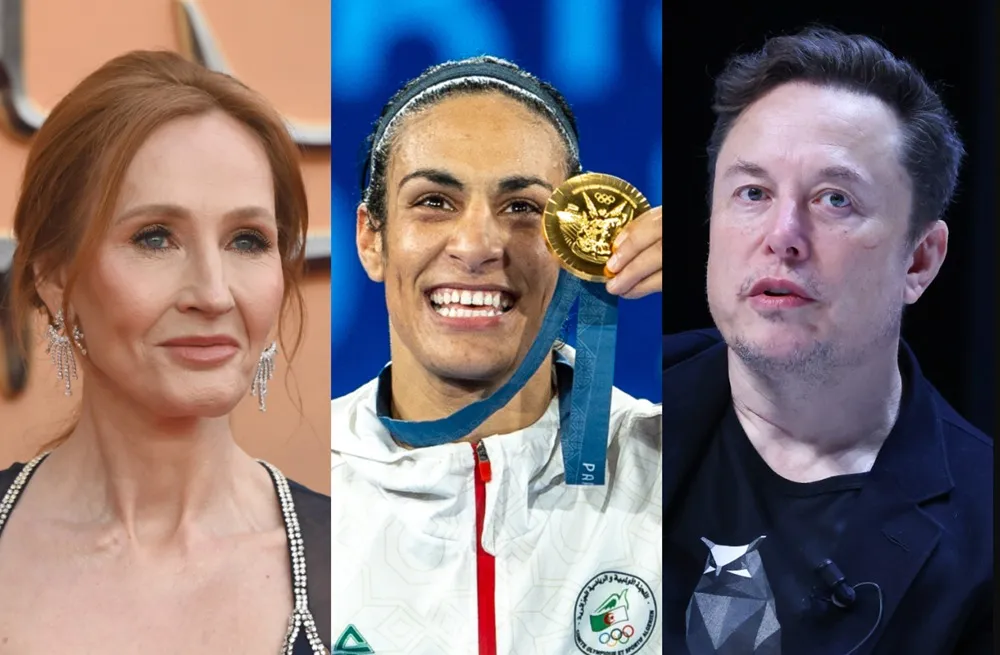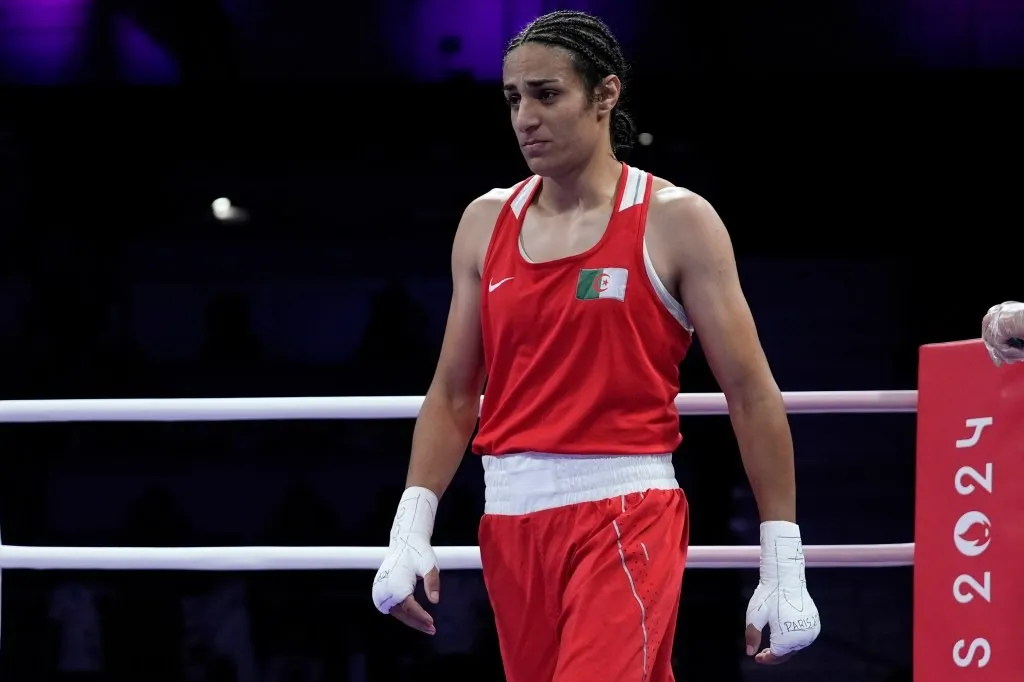In a surprising turn of events, Elon Musk and JK Rowling have come together to criticize Imane Khelif. They are calling for the exclusion of transgender athletes in women’s sports. This controversial stance has sparked widespread debate and attracted much attention from the public and the media.
Elon Musk, the CEO of Tesla and SpaceX, and JK Rowling, the author of the Harry Potter series, are both well-known public figures. Their opinions often generate significant buzz and discussion. When they united to voice their concerns about transgender athletes in women’s sports, it quickly became a hot topic.
Imane Khelif, a prominent women’s sports figure, has strongly advocated for inclusion and diversity. Her support for transgender athletes competing in women’s sports has sparked praise and criticism. Musk and Rowling’s recent comments have added fuel to the ongoing debate about fairness and equality in sports.
At a recent event, Elon Musk shared his views. He argued that allowing transgender women to compete in women’s sports is unfair to cisgender women, creating an uneven playing field. Musk emphasized the need to protect opportunities for cisgender women to compete on equal terms.
JK Rowling echoed Musk’s sentiments in social media posts. While she supports transgender rights, she believes their inclusion in women’s sports threatens fairness. Rowling called for policies that ensure a level playing field for all athletes, arguing cisgender women should not be disadvantaged.
Their comments have sparked strong reactions from both sides. Supporters of Musk and Rowling applaud their willingness to address a sensitive issue. They argue that biological differences between transgender women and cisgender women can create unfair advantages in competitive sports. They believe preserving the integrity of women’s sports is essential.

Critics, however, view Musk and Rowling’s stance as exclusionary and discriminatory. They argue that transgender women deserve the same opportunities to compete as cisgender women. Advocates for transgender inclusion stress the importance of recognizing and respecting transgender identities, calling for policies focused on inclusivity and equality rather than exclusion.
Social media has become a battleground for this debate. Hashtags related to the issue are trending, with users expressing diverse opinions. Some share personal stories of transgender athletes’ struggles for acceptance and fairness, while others highlight studies and data to support their views.
Imane Khelif has responded by reiterating her commitment to inclusion and fairness in sports. She stressed the importance of creating an environment where all athletes feel welcome and respected. Khelif acknowledged the complexity of the issue but called for a more compassionate approach. She urged people to listen to the experiences of transgender athletes and consider the broader impact of exclusionary policies.

As the debate continues, sports organizations and governing bodies are weighing in. Some have policies allowing transgender athletes to compete based on their gender identity, while others are considering changes to ensure fairness and inclusivity. The challenge lies in finding a balance that respects transgender athletes’ rights while addressing competitive fairness concerns.
Musk and Rowling’s involvement has highlighted the need for thoughtful discussions on this issue. Their high-profile status has brought more attention to the topic, encouraging more people to engage in conversations about fairness, equality, and inclusion in sports.
This debate extends beyond sports, touching on identity, rights, and fairness. As public figures like Musk and Rowling voice their opinions, it’s crucial to consider the diverse perspectives and experiences of those affected by these policies.
In conclusion, Elon Musk and JK Rowling’s call to exclude transgender athletes in women’s sports has ignited a heated debate. Their stance has received both support and criticism, reflecting the issue’s complexity. As conversations continue, finding a balance that respects transgender athletes’ rights while ensuring fairness in competition is essential. This debate underscores the importance of inclusivity, equality, and understanding in shaping the future of sports and society.




